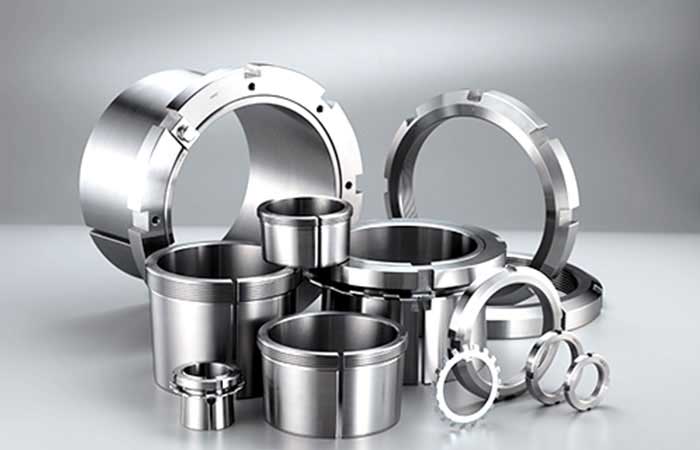1、 Manual lubrication
This is the most primitive method, which uses an oiler to supply oil when the lubricating oil in the bearing is insufficient. However, this method is difficult to maintain a certain amount of fuel, and there is a greater risk of forgetting to refuel due to negligence. It is usually only used in situations with light loads, low speeds, or intermittent movements. It is best to install a dust cover or ball valve on the refueling hole and use felt, cotton, wool, etc. as filtering devices when operating.
2、 Drip lubrication
Usually used for light and medium load bearings with a circumferential speed of less than 4-5m/s, a roughly quantitative amount of lubricating oil is supplied from the container through holes, needles, valves, etc. The most classic is the drip oil cup, and the amount of oil dropped varies significantly with the viscosity of the lubricating oil, bearing clearance, and oil supply hole position.
3、 Oil ring lubrication
The lubricating oil in the oil tank is carried to the bearing by a rotating ring hanging on the shaft (only applicable to the lubrication method of horizontal shaft), suitable for medium and high-speed bearings with a shaft diameter greater than 50mm. The oil ring is preferably seamless. When the bearing width to diameter ratio is less than 2, only one oil ring can be used, otherwise two oil rings are required.

4、 Oil rope lubrication
By relying on the capillary and siphon action of the oil rope, the lubricating oil in the oil cup is guided into the bearing, mainly used for light and medium load bearings with a circumferential velocity of less than 4-5m/s. In addition, the oil rope can play a filtering role throughout the entire process.
5、 Oil pad lubrication
By utilizing the capillary action of the oil pad, the lubricating oil in the oil pool is applied to the surface of the shaft diameter. This method can keep the friction surface clean regularly, but dust can also clog the capillary pores and cause insufficient oil supply. The oil supply for pad lubrication is usually only 1/20 of that for oil lubrication.
6、 Oil bath lubrication
This lubrication method involves immersing a portion of the bearing in lubricating oil, which is commonly used for vertical thrust bearings and not suitable for horizontal radial bearings.
7、 Splash lubrication
The lubricating oil splashed by the impact of rotating parts in the oil tank is supplied to the bearing, which is suitable for high-speed bearings.
8、 Spray lubrication
The lubrication method of atomizing lubricating oil and spraying it on the friction surface is suitable for high-speed bearings.
9、 Pressure oil supply lubrication
By relying on the pressure of the lubrication pump to supply oil to the bearings, the lubricating oil flowing out of the bearings is recovered into the oil pool for recycling, which is the most abundant and stable lubrication method for high-speed, heavy-duty, and important sliding bearings.
10、 Circulating oil lubrication
Use an oil pump to transport the filtered oil to the bearing components, and filter and cool the lubricating oil after passing through the bearings before use. Due to the fact that circulating oil can take away a certain amount of heat and cool down bearings, this method is suitable for bearing components with high rotational speeds.
11、 Jet lubrication
Use an oil pump to spray high-pressure oil into the bearing through a nozzle, and the oil injected into the bearing flows into the oil groove through the other end of the bearing. When the bearing rotates at high speed, the rolling elements and the cage also generate airflow at a considerable rotational speed, making it difficult to deliver lubricating oil to the bearing using conventional lubrication methods. In this case, high-pressure spraying must be used to spray lubricating oil into the bearing, and the nozzle should be placed between the inner ring and the center of the cage.
Bearing lubrication is a continuous process, and the replacement cycle of lubricating oil depends on the different usage conditions and oil levels of the bearings. In general, at an operating temperature of 5